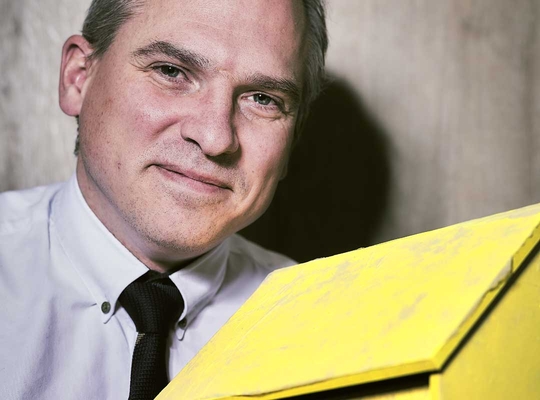You are here
Minister Diependaele is rolling out foreign property research across Flanders

“Flanders needs every bit of social housing, which must go to people who actually need it.” Flemish Minister for Housing Matthias Diependaele gives the go-ahead for foreign property research throughout Flanders. “Social landlords can launch an investigation into social tenants who they suspect own property abroad and are therefore not entitled to social housing.”
Social housing is reserved for the target group that is actually entitled to it. Anyone renting social housing is not allowed to own their own home at the same time. The scrutiny of domestic real estate property can easily be checked by the social landlord via the Crossroads Bank for Social security Social security is currently managed at the Federal level in Belgium. The most important pillars of Belgian social security are: sickness and invalidity insurance (NIDHI), pensions, unemployment insurance and child allowances. In addition, occupational illness, occupational accidents and annual holidays are dealt with at this level. Some Flemish parties have been campaigning for years for (large parts of) social security to be transferred to the Regions and Communities. Social Security . “It’s not that easy for foreign properties,” Minister Diependaele says. “The FPS Finance often doesn’t have the information needed, so it’s necessary to find out from the foreign location whether someone owns such property. That requires not only effective control abroad, but also the knowledge of the practices and regulations of all those different countries.”
Research possible in 41 countries
In order to remove practical obstacles, the Flemish Government (VMSW) has concluded a framework agreement with private research agencies specialising in research into real estate abroad. “Any social landlord will be able to call on these private investigation agencies from mid-March, without any administrative red tape,” Matthias Diependaele says. “In total, the framework agreement will allow social landlords to commission research work in no fewer than 41 countries. Thanks to an additional provision in the grant regulations, they will be able to start such research in the other countries in addition to the framework agreement.”
EUR 5 million subsidy
In order to also remove the financial barriers as far as possible, Minister Diependaele is providing a subsidy for social landlords who make use of the framework contract. “Foreign property research is not free, of course, and it is a high cost for smaller social landlords to bear,” Minister Diependaele says. “That’s why we already decided last year to allocate an annual sum of EUR 5 million as from 2021 to stimulate and financially support foreign fraud investigations.”
Preliminary investigation and full investigation
An investigation of foreign ownership proceeds in two phases: the preliminary investigation and the substantive investigation. “During the preliminary investigation, the agency will find out if there is property ownership in a foreign country, Minister Diependaele clarifies. “If that is the case, the investigation will proceed to a substantive investigation.”
What does such an investigation actually cost? “That depends from case to case and from country to country. We have agreed on margins within the framework agreement. A preliminary investigation costs a minimum of EUR 150 and a maximum of EUR 5,222 and takes from three to 30 days,” Minister Diependaele says. “For a full investigation, including the preliminary investigation, the total invoice will amount to a minimum of EUR 2,275 and a maximum of EUR 12,335. The total processing time varies between six and 90 days. “For the preliminary investigation that does not produce evidence of foreign ownership, we will reimburse 75% of the invoice amount together with the Flemish government. The social landlord must pay the remaining 25% itself. If the preliminary investigation does produce proof of foreign real estate ownership, the Flemish government will reimburse 100% of the total invoice amount, both for the preliminary investigation and for the substantive investigation.”
Return on investment and more fairness in the social rental market
Social housing must be provided to tenants who are entitled to it. “No one can accept that someone who owns (possibly several) houses or plots of land can still claim social housing,” Minister Diependaele continues. “Anyone who already owns a home therefore loses the right to social housing. This type of fraud must therefore also be dealt with to the maximum possible extent.”
Each case that concludes the investigation successfully also adds to greater fairness in the social rental market. “On the one hand, a house becomes available for another social tenant who is entitled to it, and on the other hand, the fraudster has to pay back the social rent reduction, often unlawfully enjoyed for years, to the social landlord. This also has the effect of a return on investment for the social housing companies, which can reinvest this money in new housing and/or renovations.”

